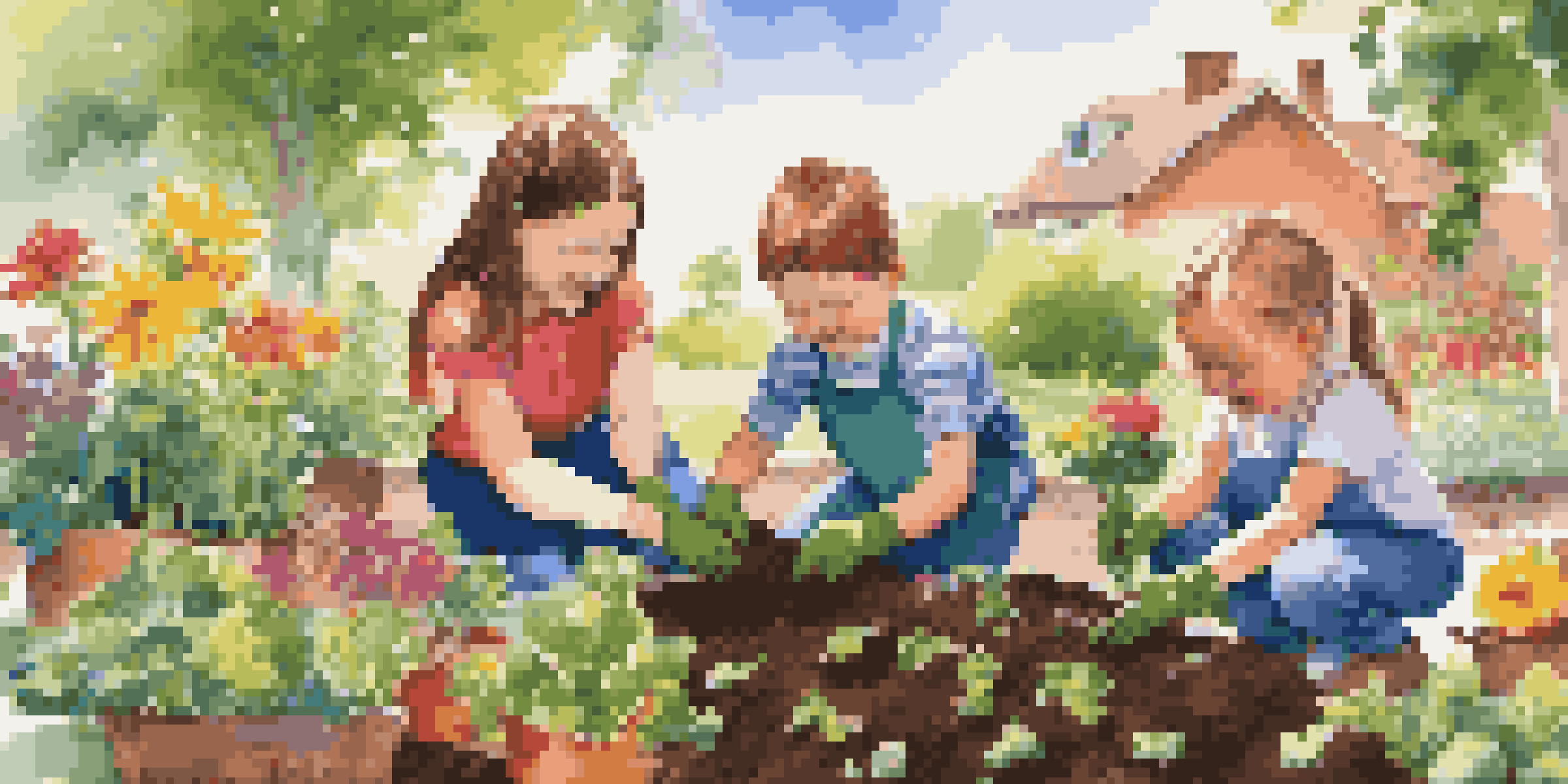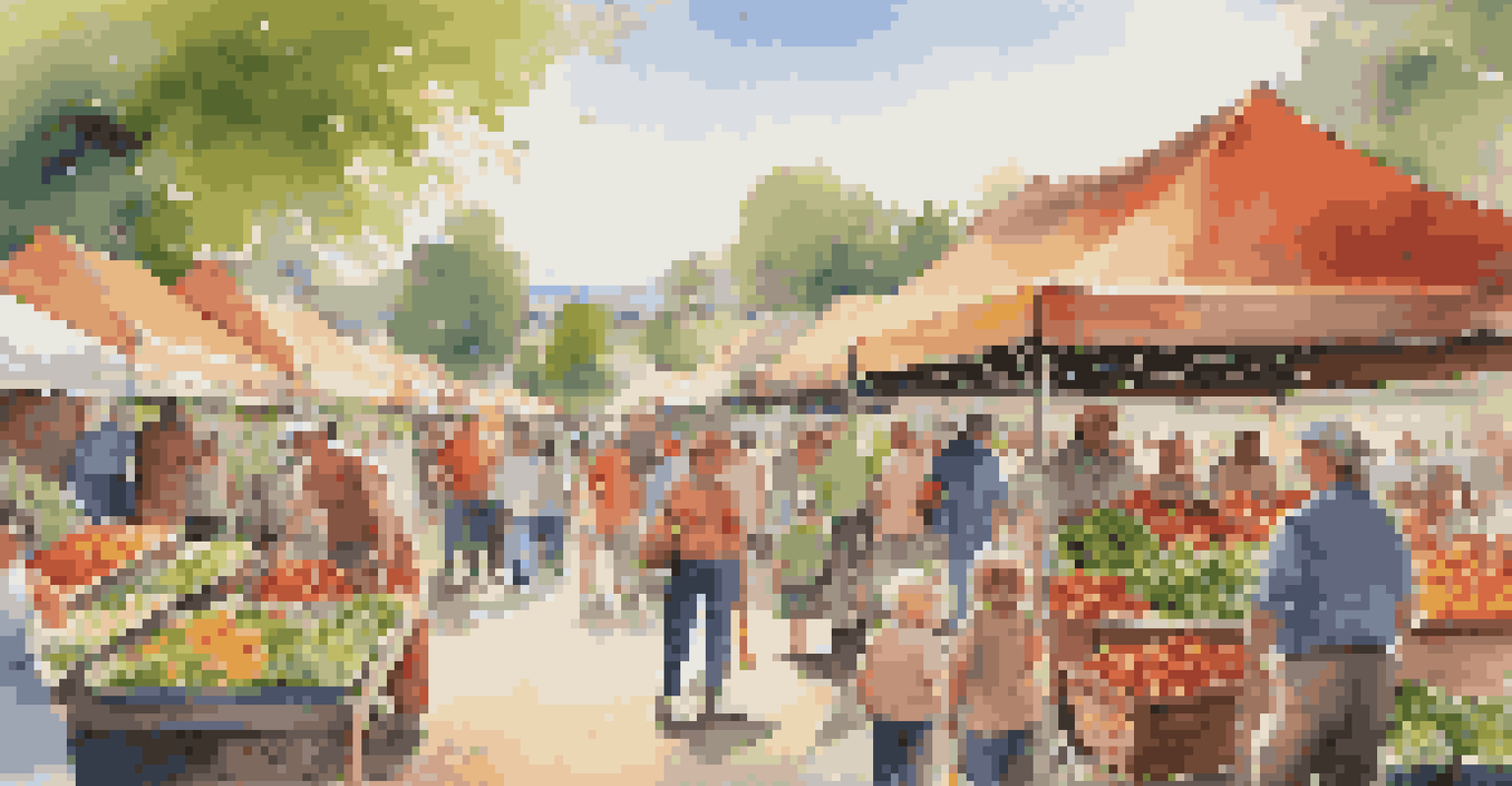Encouraging Kids to Learn About Food Origins

Start with a Family Garden Project
Getting kids involved in a family garden can be an exciting way to teach them about food origins. When they plant seeds and watch them grow, they gain firsthand experience of where their food comes from. You can explain the process of photosynthesis and how that little seed transforms into a vegetable on their plate.
The greatest gift you can give your children is not your riches, but instead, is your time spent with them.
As they nurture the plants, kids will also learn about the importance of soil, water, and sunlight, creating a deeper connection to the earth. This hands-on activity not only promotes learning but also encourages responsibility and teamwork. Plus, it’s a great excuse to spend quality time together outdoors!
When it’s time to harvest, the joy of picking their own vegetables can spark curiosity about how these foods are prepared and consumed in different cultures. This can lead to fun discussions about recipes and the diversity of ingredients that exist around the world.
Visit Local Farms or Farmers' Markets
Taking kids to local farms or farmers' markets can be an eye-opening experience for them. Seeing where and how food is grown helps demystify the journey from farm to table. They can interact with farmers, ask questions, and even sample fresh produce, giving them a taste of the hard work that goes into food production.

This outing can also encourage conversations about sustainability and the benefits of eating locally. Kids can learn about seasonal produce and why it’s important to support local agriculture. When they understand that their food travels fewer miles, they can relate it back to environmental impact.
Engage Kids with Family Gardening
Involving kids in a family garden teaches them about food origins and encourages responsibility while nurturing a connection to nature.
Moreover, these trips can inspire kids to try new fruits and vegetables that they may have never tasted before. By associating these foods with fun experiences, they might be more willing to eat them at home, creating a positive cycle of exploration and learning.
Incorporate Food Education in Cooking
Cooking together is a fantastic way to teach kids about food origins. As you prepare meals, discuss where each ingredient comes from and its journey to your kitchen. This not only makes them aware of the food’s background but also helps them appreciate the effort involved in meal preparation.
Food is our common ground, a universal experience.
You can introduce them to different cuisines and the stories behind various dishes. For instance, while making pasta, you can explain how wheat is harvested and processed. This can lead to discussions about cultural traditions surrounding food, making the cooking process even more enriching.
Encouraging kids to help with cooking also empowers them to make healthier food choices. They begin to associate cooking with fun, creativity, and knowledge about their meals, which can positively influence their eating habits for years to come.
Use Books and Media to Spark Interest
Books and media are powerful tools for engaging kids in learning about food origins. There are many children’s books that explore the journeys of food, from farm to table, in a fun and captivating way. These stories can ignite their curiosity and encourage them to ask questions about what they eat.
Additionally, documentaries and cooking shows designed for kids can provide visual insight into the food production process. Seeing real-life farmers, chefs, and food enthusiasts can inspire young minds to think critically about food sources. This multimedia approach ensures that learning is dynamic and enjoyable.
Explore Local Food Sources
Visiting local farms and farmers' markets helps children understand the journey of food from farm to table, fostering a greater appreciation for local agriculture.
By combining storytelling with visual content, you can foster a deeper appreciation for food and its origins. Children may start to recognize the importance of supporting sustainable practices and become advocates for responsible food consumption.
Explore Cultural Food Traditions Together
Diving into cultural food traditions can be an exciting adventure for kids. Each culture has its own stories, rituals, and practices surrounding food, making this a rich area for exploration. You can celebrate different food festivals or try cooking traditional meals from various countries.
This not only broadens their palate but also enhances their understanding of global diversity. Discussing how geography and climate influence food production can further enrich their knowledge. Kids will learn that food is not just about nourishment but also about heritage and community.
Encouraging them to share their own family recipes or traditions can create a sense of pride and ownership. This way, they’ll learn that every dish has a story, fostering a deeper connection to the food they enjoy every day.
Promote Mindful Eating Practices
Teaching kids about food origins can go hand in hand with promoting mindful eating practices. Encouraging them to think about where their food comes from can help them make more conscious choices at mealtime. Discussing the benefits of whole foods versus processed options can empower them to choose healthier options.
You can introduce activities like food journaling, where kids write down what they eat and reflect on its origins. This encourages them to be curious about their meals and engage in discussions about nutrition and environmental impact. Additionally, mindfulness during meals can enhance their appreciation for flavors and textures.
Encourage Curiosity About Food
Promoting questions about food origins inspires kids to explore and learn about nutrition, sustainability, and cultural traditions.
These practices can lead to a lifelong habit of being intentional about what they eat. When kids understand the connection between their choices and the wider world, they’ll be more likely to make informed decisions that benefit their health and the planet.
Encourage Questions and Curiosity
Encouraging kids to ask questions about food can help them develop a genuine curiosity about its origins. Whether they wonder how chocolate is made or where bananas grow, fostering this inquisitiveness is key. Creating an environment where they feel comfortable asking questions can lead to meaningful discussions and explorations.
You can turn these questions into fun learning opportunities by researching together. For example, if they’re curious about honey, you can explore the role of bees in pollination and how honey is harvested. This hands-on approach makes learning engaging and memorable.

As they learn to question the world around them, kids will develop critical thinking skills that extend beyond food. This curiosity can inspire them to explore other topics and become lifelong learners, making it a valuable skill in their personal and academic lives.